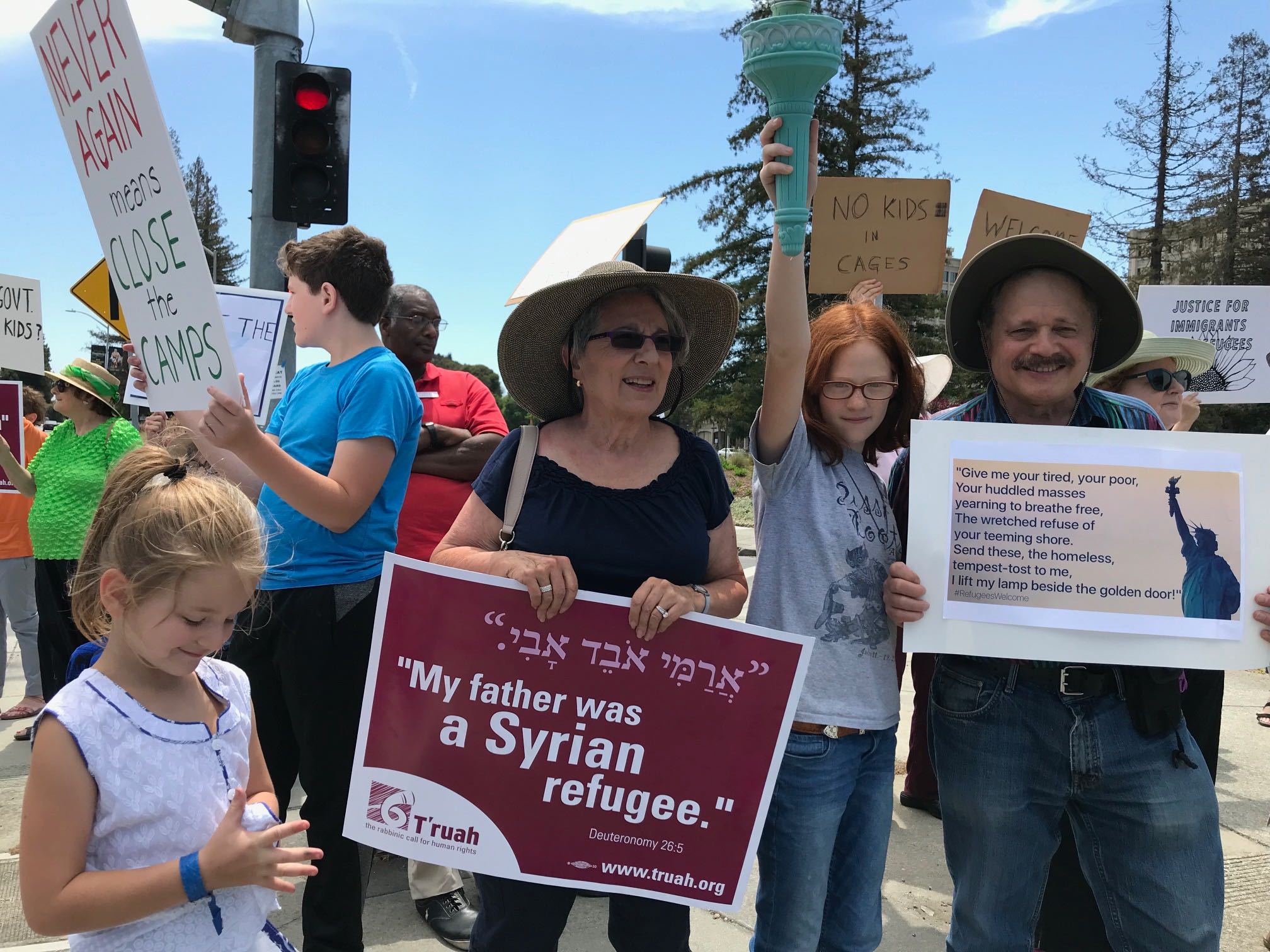Since July 21, Palo Alto residents have gathered to protest federal immigration policy from noon to 12:30 p.m. every day but Saturday at the intersection of El Camino Real and Page Mill Road. Organized by local Jewish educator Nechama Tamler, the three-week “Close the Camps” protest was created with one major goal: “No kids in cages.”
The United Nations High Commissioner for Human Rights said on July 8 that the U.S. southern border detention centers holding migrants and asylum seekers are “undignified” and “alarming.” Just one day before, U.S. Secretary of Homeland Security Kevin McAleen told ABC News that conditions in the centers are not as bad as had been reported by The New York Times. But many other reports of unsanitary conditions have circulated.
According to USA Today, “nearly 400 men were housed in sweltering cages so crowded it would have been impossible for all of them to lie down.” Many weren’t able to clean themselves for days or, in some cases, months.
On the first day of the Palo Alto protest, dozens of people held signs showing phrases such as “Never Again means Close the Camps,” and “Support our undocumented brothers and sisters.” As the protest has continued, the number of participants has grown, and many passing drivers have honked to show encouragement.
“[Protesting] is the best way to stop the tear-gassing, the injurious and at times lethal detentions of immigrants, and the appalling imprisonment of vulnerable, young children separated from their families,” wrote Stanford affiliate Rhona Mahony, who helped Tamler organize the protests, in an email to The Daily.
Tamler hopes to raise awareness about the realities of the border detention centers, and to convince the federal government to give better treatment to those inside the centers. Demonstrators held signs and small replicas of the Statue of Liberty, symbolizing their support for immigrants.
Mahony believes that if more people protest, Congress will be pressured to reduce support and funding for Immigration and Customs Enforcement (ICE) and the Border Patrol. She hopes these changes will “reduce their agents’ unconstitutional snatching of [her] neighbors off the street because they ‘look’ as though they don’t have a visa.”
The two major challenges facing protesters, Mahony wrote, are anger and fear. She finds it difficult to have “respectful conversations in the atmosphere of anger and fear that we live in now.” To recover from these obstacles, she encourages others to be patient, respectful and compassionate towards people who support immigration policies.
She added that, as a result of the demonstrations in Palo Alto, “Scores of people are expressing their compassion in the company of neighbors they are meeting for the first time. We are building community and caring.”
By protesting, Mahony wrote, “We are helping people build their political strength to change hurtful policies founded on hatred and falsehoods.” This is what she defines as “living democracy.”
Contact Rachel Jiang at racheljiang310 ‘at’ gmail.com.
